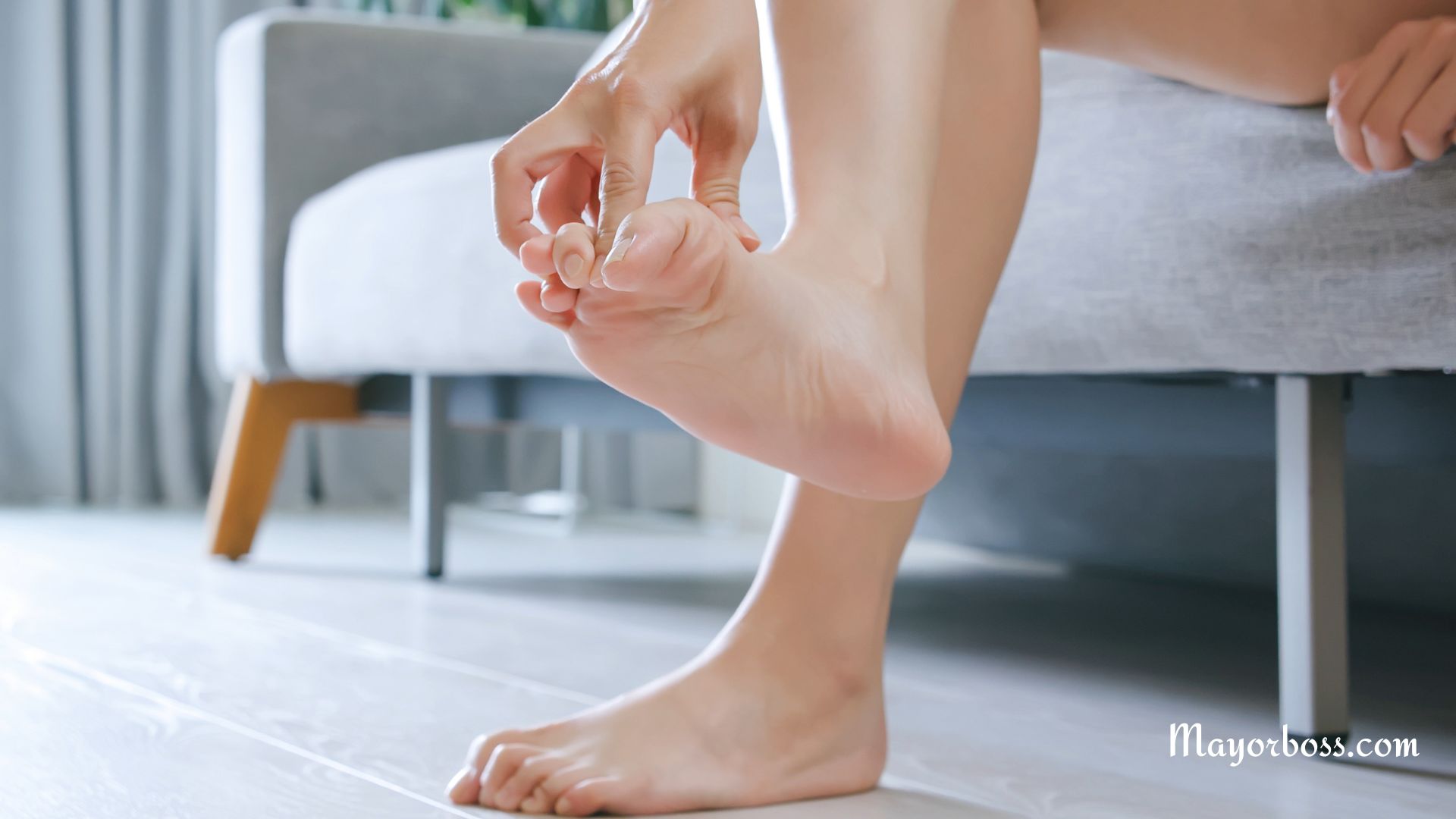What It Means If You Have Itchy Feet At Night
There are several reasons you might experience itchy feet during the night. Often, the cause is simple. However, some conditions need medical attention.

Fungal Infections
A fungal infection, such as athlete’s foot, is a common cause of itching on the feet. An athlete’s foot is caused by a fungus that grows in warm, damp places like the spaces between your toes. The infection causes red, scaly skin and itching. The fungus may spread if not treated. Over-the-counter antifungal creams usually help, but severe cases may require a doctor’s prescription.
Dry Skin
Dry skin is another common cause of itchy feet during the night. Many people experience drier skin at night because the body’s natural moisture levels change as you sleep. Dry skin can lead to itchiness and irritation. Using a gentle moisturizer on your feet can reduce dryness and help control itching. Be sure to use products that do not contain harsh chemicals.
Allergic Reactions and Irritants
Itchiness may result from an allergic reaction or irritation. New shoes, socks, or detergents used on your clothing can cause contact dermatitis. This skin reaction occurs when your skin comes into contact with an irritant. The result is redness, itching, and sometimes small bumps. Identifying and avoiding the trigger can reduce symptoms. Over-the-counter creams can ease the itching.
Peripheral Neuropathy
Neuropathy is a condition that affects the nerves. Peripheral neuropathy can cause tingling, burning, or itching sensations. This condition is common in people with diabetes, but it may also occur for other reasons. The sensation may worsen at night when distractions are fewer. If you have diabetes or other risk factors, discuss your symptoms with a doctor. Early diagnosis can help prevent further complications.
Systemic Conditions
Some systemic conditions may lead to itchy feet. Liver disease, kidney problems, and thyroid disorders can cause skin changes that lead to itching. These conditions are not limited to the feet, but the feet can be a noticeable area for symptoms. If you experience itching along with other symptoms such as fatigue, weight loss, or changes in urine or stool color, contact your doctor for a full evaluation.
How to Manage Itchy Feet
Managing itchy feet starts with understanding the cause. Here are steps you can take to help manage the condition.
Maintain Good Foot Hygiene
Good foot care is essential. Wash your feet with lukewarm water and a gentle soap. Dry them well, especially between your toes. Damp areas can encourage the growth of fungus. Clean feet reduce the risk of infection and irritation.
Use Moisturizers Regularly
Applying a gentle moisturizer can help with dry skin. Look for a product that is free of harsh chemicals and fragrances. Use it daily, particularly at night before bed. Well-hydrated skin is less likely to become itchy.
Avoid Irritants
Identify products that may cause an allergic reaction. Consider switching to hypoallergenic laundry detergents and skin care products. Wearing socks made of natural fibers may also reduce irritation. Change socks regularly and allow your feet to breathe.
Over-the-Counter Treatments
Over-the-counter creams may offer relief for minor fungal infections or dermatitis. Antifungal creams can help treat athlete’s foot, while hydrocortisone creams may reduce irritation from allergic reactions. Follow the directions on the label. If the condition does not improve, consult your doctor.
Manage Underlying Health Conditions
If your symptoms are due to a condition such as diabetes or liver disease, proper management of the condition is crucial. Work closely with your doctor to keep your blood sugar levels or other relevant markers in check. Managing your overall health can reduce symptoms like itching.
When to Seek Medical Advice
While many cases of itchy feet at night are not serious, some signs require professional attention.
- Persistent Symptoms: If the itching lasts more than a few weeks, schedule a visit with your doctor.
- Spreading Redness or Swelling: These signs may indicate an infection that needs prompt treatment.
- Other Symptoms: If you experience pain, numbness, or changes in skin color along with itching, medical evaluation is needed.
- Known Health Conditions: If you have diabetes or another chronic illness, report new or worsening symptoms to your healthcare provider.
Early evaluation can prevent complications. Your doctor may perform a physical exam and order tests such as blood work or skin scrapings. These tests help determine the exact cause of the itching and guide proper treatment.
